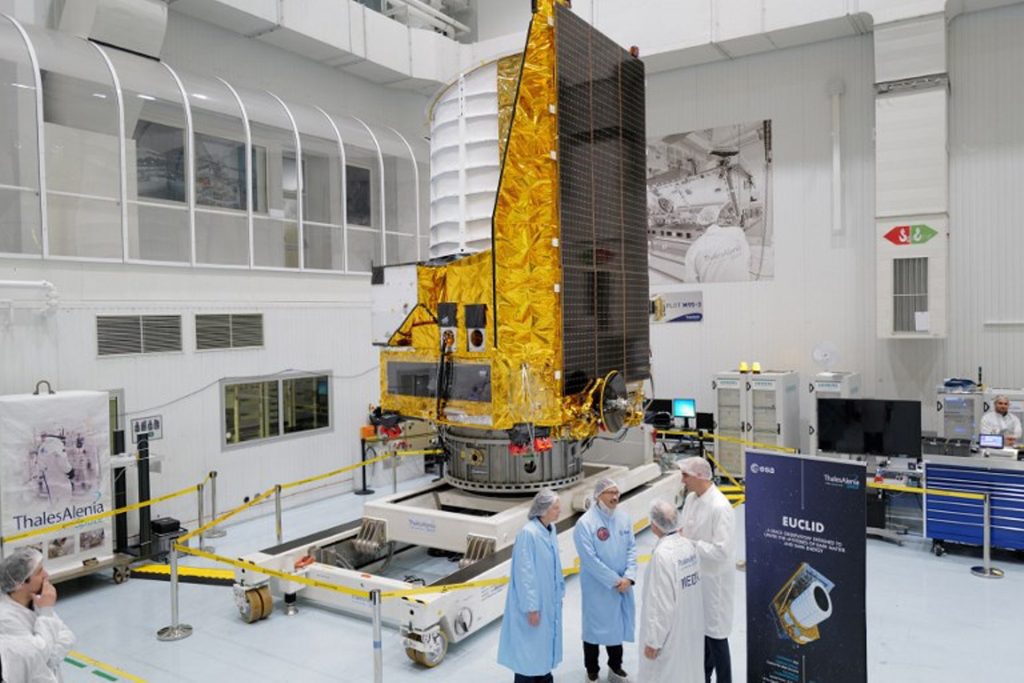Euclid, a European satellite, is set to launch on Saturday, poised to redefine galactic mapping.
Developed in a ten-year project by over 3,500 scientists and engineers from 21 countries, including teams from Belgian universities and the Liège Space Centre, Euclid’s mission is focused on deciphering the universe’s enigmatic invisible matter – dark energy and dark matter.
Comprising 95% of the universe, with dark energy at 68% and dark matter at 27%, this unseen matter has intrigued scientists for years. As Belgian cosmologist André Fuzfa states, “We know it’s there, but we don’t know what it is.”
Euclid: a cosmic time machine
In its projected lifespan, Euclid will create a three-dimensional map of billions of galaxies, both ancient and recent. This celestial atlas is expected to offer a unique retrospective of the universe, aiding scientists in understanding the impact of dark energy and matter on galaxy distribution over eons.
Euclid will orbit about 1.5 million kilometres from Earth, amassing approximately 850 gigabytes of data daily over a period of six years.
Following its SpaceX Falcon 9 launch from Cape Canaveral, USA, the satellite’s orbit will be fully established within two to three months. As Sébastien Clesse, a cosmologist from the ULB, notes, “Launching a telescope always brings a bit of stress.”
The treasure trove of data collected by Euclid will be made public from November 2023, releasing in intervals. Fuzfa anticipates that the data will likely engage “at least a generation of scientists,” heralding a new era of cosmic understanding.

